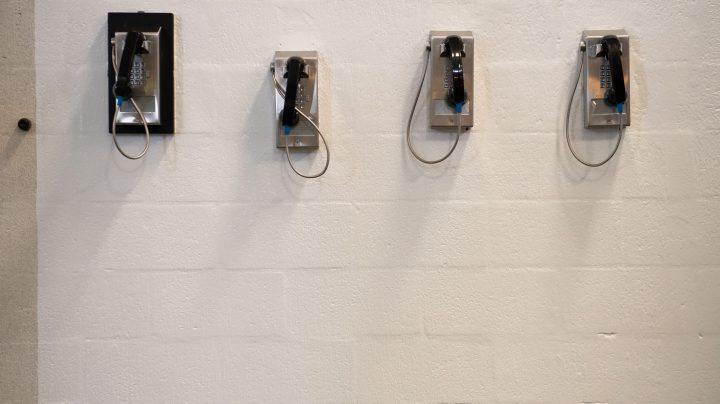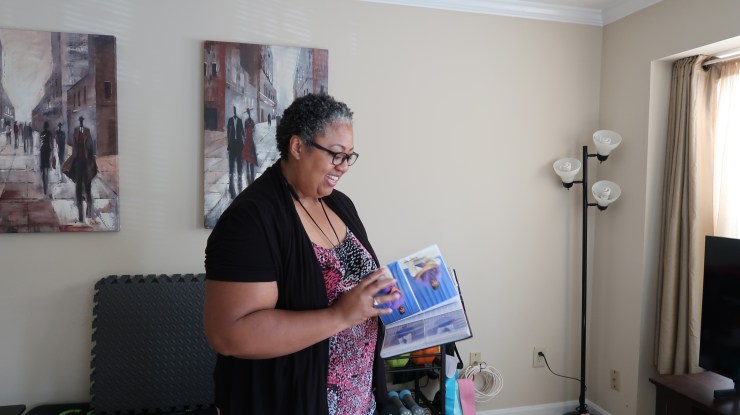
A new law aims to make prison calls affordable. The FCC must decide what that means.
A new law aims to make prison calls affordable. The FCC must decide what that means.

A new law gives the Federal Communications Commission broader authority to regulate the cost of calls made by incarcerated people. The Martha Wright-Reed Just and Reasonable Communications Act of 2022 was named after a grandmother who spent years pushing the federal government to limit the cost of calls, which could run more than a dollar a minute in some cases.
In 2014, after years of pressure from advocates, Congress gave the FCC authority to cap the cost of prison calls. That brought the cost of calls down to about 12-14 cents a minute, but only for interstate calls; the industry successfully argued that the FCC could not cap rates on the roughly 80% of calls made within states.
“What we’re going to be able to do as a result of this new law is address intrastate rates with legal authority for the first time, make sure they’re just, reasonable and fair,” said FCC Chairwoman Jessica Rosenworcel. “We’re also going to be able to look at new technologies like IP and video calling, and make sure those are available and fairly priced too.”
These changes could make a difference for people like Paulettra James of Woodbridge, Virginia. She works as an executive assistant but also advocates for prison reform.
“My son is incarcerated. And so it’s very important for me as a mother to let him know that I’m here for him and that I support him, so communication is everything,” James said.

James regularly puts money into an online account so her son can call her and send e-mails. She does the same for her husband, who is also incarcerated, and those costs add up to about $500 a month. And because those calls are made and received within the state of Virginia, they are not subject to FCC limits. According to the Prison Policy Initiative, a 15-minute in-state call in Virginia can be as much as $4.20.
“One in three families with a loved one who’s incarcerated goes into debt over the simple cost of a call and visits,” said Bianca Tylek, executive director at advocacy group Worth Rises. “And 87% of those that are carrying this burden are women. And disproportionately because of who our system targets — and penalizes excessively — it’s women of color.”
But to set the new rates, Rosenworcel said the FCC will have to balance competing interests, making the rates and any extra fees reasonable for families of the incarcerated, while also paying the companies that provide the services fairly.
“The law says every payphone provider should be fairly compensated for each and every call, but as far as I’m concerned, we’ve got to put a finger on the scale here,” Rosenworcel said. “Justice requires that people who are incarcerated in their families can speak to one another, can make sure that they stay in contact. It plays a really big role in recidivism.”
That’s why advocates are using this rulemaking period to push for major cuts to the cost of these calls.
“We need to keep working with the FCC and around the country to persuade the FCC to make these rates as low as possible and to persuade localities and states around the country to bring these costs down to as low as free of charge,” said Cheryl Leanza, a policy adviser for the United Church of Christ Media Justice Ministry, a group that’s been working on this issue for decades.
Indeed, California, Connecticut and some cities have made calls free for incarcerated people and their families by absorbing the cost into their budgets. But the industry providing these services is also weighing in on the rulemaking process.
Aventiv, one of the two companies that control the majority of prison communications, supported the new law, said Margita Thompson, chief communications and community engagement officer. She said the company’s rates are already at or below the current FCC rate caps, even for in-state calls.
“We try and inform the FCC so that they use data as they send out the regulation that’s going to dictate what the rate caps are, what qualifies as cost, how much you’re allowed to charge,” she said.
Thompson said Aventiv wants the final rules to reflect the hundreds of millions of dollars she said the company has spent setting up and delivering phone and video calls in a high-security environment.
“Part of the challenge is that people don’t understand the costs that go into providing this service. And so there’s an infrastructure that needs to be invested in, which is what we invested over half a billion dollars over the past four years,” she said. “The tablets cost money, the Wi-Fi costs money. So how is it that we can balance these needs of the incarcerated individual while investing in the infrastructure that’s needed to bridge the digital divide, that would be exacerbated if we didn’t provide this service?”
The other main company in this space, GTL, now known as ViaPath Technologies, wouldn’t provide anyone for an interview but said in a October 2021 statement:
“There is no one-size-fits-all approach to providing communication services within correctional facilities, but we are focused on providing innovative technology that meets both the needs of the facility and the needs of the users because we understand the importance of communication between incarcerated individuals and their loved ones.”
Additional reporting by Trina Mannino.
There’s a lot happening in the world. Through it all, Marketplace is here for you.
You rely on Marketplace to break down the world’s events and tell you how it affects you in a fact-based, approachable way. We rely on your financial support to keep making that possible.
Your donation today powers the independent journalism that you rely on. For just $5/month, you can help sustain Marketplace so we can keep reporting on the things that matter to you.

















